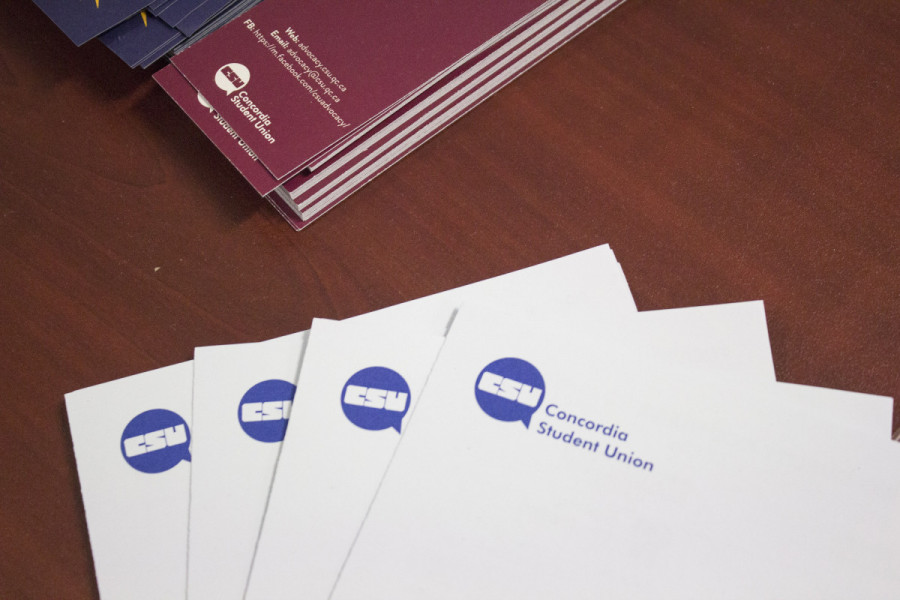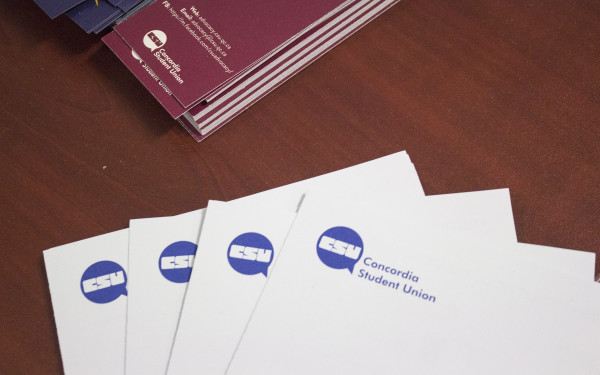Secret ballots and the CSU: Curbing harassment or avoiding accountability?
Motion to regulate use of secret ballots passes
A motion regulating council’s use of secret ballots passed during the Oct. 14 Concordia Student Union meeting.
The motion brought forward by councillor Désirée Blizzard proposed to change how secret ballots are used during CSU meetings. The motion suggested that there must be majority support in order for a secret ballot to be enacted.
Prior to this motion, a secret ballot could be called by a single councillor and the vote would automatically go to a secret ballot.
“Currently there is no policy that exists in our [Standing Regulations] and bylaws about secret ballots,” explained Blizzard. “I don’t want secret ballots to disappear. Secret ballots will still be possible, but you will need a simple majority to enact it. You can mention that you fear voicing your opinion because of cyberbullying and we will take that in mind.”
“I don’t want secret ballots to be used every time someone wants to hide their vote,” she added.
Councillor Tzvi Hersh Filler was quick to propose three amendments to it—all of which failed to pass.
Rather than need the majority to go to a secret ballot, his first amendment would make it so that if someone opposed the use of a secret ballot, they would have a vote to not use a secret ballot. There was some confusion surrounding whether or not this amendment was actually proposing anything different from the original motion.
The third amendment, which was contingent on the first amendment, proposed rather than a majority needed to pass a secret ballot vote, only 33 per cent support would be needed in order for it to pass.
The second amendment, however, was the most divisive. This amendment was that the vote for secret ballots must take place in a secret ballot.
“People should lead with compassion and respect, instead of trying to hide their votes.” —Désirée Blizzard
“In the event you’re calling a secret ballot in fear of harassment, the fact that you’re holding the vote in open session defeats the purpose,” said Filler.
“The secret ballot is not just because you want to show your vote. We’re a public company, a not-for-profit. You have to be accountable for your decisions. If you spend less time offending people, people aren’t going to come after you,” said General Coordinator Isaiah Joyner, before being interrupted by councillor Arieh Barak who accused him of justifying harassment.
Barak and other members of council thought restricting the use of the secret ballot was inherently supporting harassment and bullying.
“There is a huge difference between a conversation that is confrontational and harassment,” External Coordinator Victoria Pesce told The Link. “If people reach out to ask you questions on your vote, it's a conversation you owe them given you ran in the elections to represent them.”
“[They] ran in the elections therefore, [they] wanted to represent students at the Concordia Student Union, that alone is consent for students to reach out to you and work with you to make Concordia a better place,” Pesce added.
“Harassment happens because of a toxic culture in council, something that secret ballot doesn't avoid,” said Blizzard. “People should lead with compassion and respect, instead of trying to hide their votes.”
The motion for having secret ballots—done in a secret ballot—went to a vote where it ultimately failed.
“[...] I've seen secret ballots being called for issues that really didn't need it. Unfortunately, in most of those cases, rather than listening and trying to understand the issues at play, people will just dig their heels into their logic and then call a secret ball to sway ‘alliances’ to side with them without fear of consequences or accountability,” Joyner told The Link.
Blizzard suggested the council should not be standing for people using secret ballots just to hide their votes. The original motion focused on councillors being held accountable for the votes they cast, and they remain accountable to the students they represent.
The Link asked Blizzard if she felt the discussion accurately reflected her original motion. She replied, “No, I don't think it reflected the point I was making. The conversation turned to harassment and some councillors were saying that my motion directly equated to harassment. I think that's ludicrous. It was about transparency, a value most councillors probably had on their bios to get elected.”
Filler did not reply to a request for comment.






__600_375_90_s_c1.jpg)
